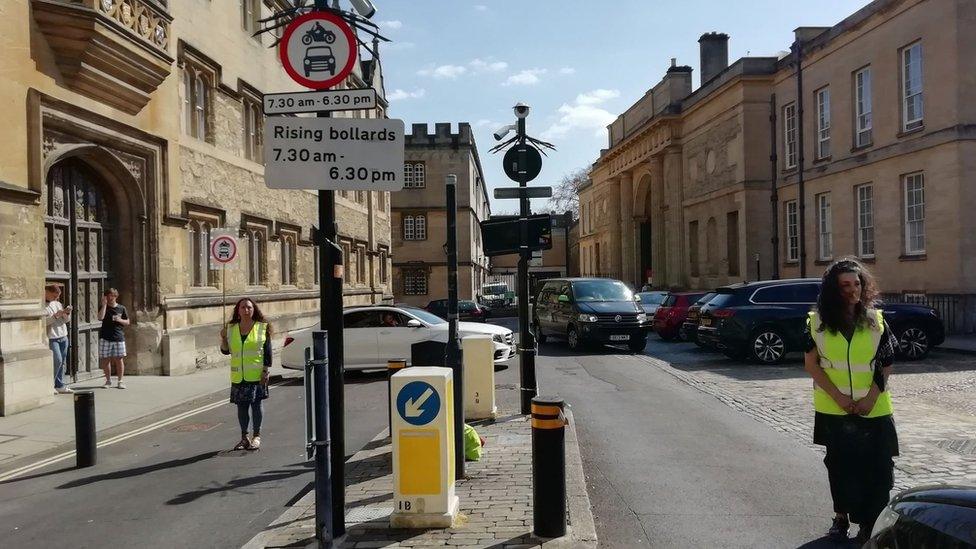Oxford's faulty rising bollards fixed after months of protests
- Published

Campaigners had used themselves as "human bollards" to protest against the lack of working rising bollards at Oriel Square
Faulty rising bollards in Oxford city centre have been fixed after months of campaigning by protesters.
The equipment's technical problems at Oriel Square prompted members of the Oxford Pedestrians Association (OXPA) to use themselves as "human bollards" to stop prohibited traffic.
In May, Oxfordshire County Council said the fault had been found and repairs would take "two to three months".
The authority said the work had been "complex" and apologised for the delay.
Posting on Facebook, external, OXPA said it was "brilliant news" the bollards were working again.
"This is certainly a result of our combined effort and actions," it said.
Motorists had still been attempting to drive through the square despite it being closed to regular traffic between 07:30 and 18:30, the group had said.
'Specialist contractors'
Its resulting "being a bollard" campaign led to protesters facing off against angry drivers, and the group pledged not to end its direct action until the problem was resolved.
In a statement, the council said: "The main reason for the delay was the need to bring in specialist contractors to support final completion, following challenges faced by the main contractor to successfully deliver the required work within the agreed timeframes."
It added that the work on an automatic number plate recognition (ANPR) system for the bollards would be completed by the end of October.
"The operation has been a complex one because as well as ANPR and the bollard infrastructure, other key elements include an overview camera system and a call centre for remote operation, plus the required internet bandwidth to operate them," the statement added.

Follow BBC South on Facebook, external, Twitter, external, or Instagram, external. Send your story ideas to south.newsonline@bbc.co.uk, external.
Related topics
- Published14 May 2021

- Published4 May 2021

- Published27 April 2021

- Published16 March 2021
